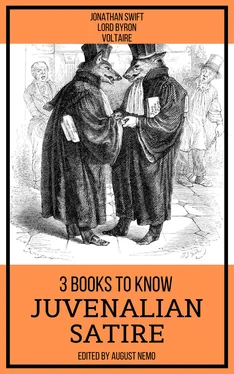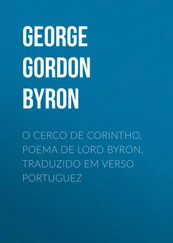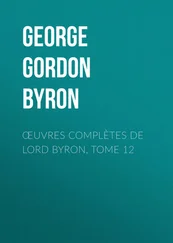1 ...8 9 10 12 13 14 ...32 And how to parry the renew'd attack?
Besides, it wanted but few hours of day:
Antonia puzzled; Julia did not speak,
But press'd her bloodless lip to Juan's cheek.
He turn'd his lip to hers, and with his hand
Call'd back the tangles of her wandering hair;
Even then their love they could not all command,
And half forgot their danger and despair:
Antonia's patience now was at a stand—
'Come, come, 't is no time now for fooling there,'
She whisper'd, in great wrath—'I must deposit
This pretty gentleman within the closet:
'Pray, keep your nonsense for some luckier night—
Who can have put my master in this mood?
What will become on 't—I 'm in such a fright,
The devil 's in the urchin, and no good—
Is this a time for giggling? this a plight?
Why, don't you know that it may end in blood?
You 'll lose your life, and I shall lose my place,
My mistress all, for that half-girlish face.
'Had it but been for a stout cavalier
Of twenty-five or thirty (come, make haste)—
But for a child, what piece of work is here!
I really, madam, wonder at your taste
(Come, sir, get in)—my master must be near:
There, for the present, at the least, he's fast,
And if we can but till the morning keep
Our counsel—(Juan, mind, you must not sleep).'
Now, Don Alfonso entering, but alone,
Closed the oration of the trusty maid:
She loiter'd, and he told her to be gone,
An order somewhat sullenly obey'd;
However, present remedy was none,
And no great good seem'd answer'd if she stay'd:
Regarding both with slow and sidelong view,
She snuff'd the candle, curtsied, and withdrew.
Alfonso paused a minute—then begun
Some strange excuses for his late proceeding;
He would not justify what he had done,
To say the best, it was extreme ill-breeding;
But there were ample reasons for it, none
Of which he specified in this his pleading:
His speech was a fine sample, on the whole,
Of rhetoric, which the learn'd call 'rigmarole.'
Julia said nought; though all the while there rose
A ready answer, which at once enables
A matron, who her husband's foible knows,
By a few timely words to turn the tables,
Which, if it does not silence, still must pose,—
Even if it should comprise a pack of fables;
'T is to retort with firmness, and when he
Suspects with one, do you reproach with three.
Julia, in fact, had tolerable grounds,—
Alfonso's loves with Inez were well known,
But whether 't was that one's own guilt confounds—
But that can't be, as has been often shown,
A lady with apologies abounds;—
It might be that her silence sprang alone
From delicacy to Don Juan's ear,
To whom she knew his mother's fame was dear.
There might be one more motive, which makes two;
Alfonso ne'er to Juan had alluded,—
Mention'd his jealousy but never who
Had been the happy lover, he concluded,
Conceal'd amongst his premises; 't is true,
His mind the more o'er this its mystery brooded;
To speak of Inez now were, one may say,
Like throwing Juan in Alfonso's way.
A hint, in tender cases, is enough;
Silence is best, besides there is a tact
(That modern phrase appears to me sad stuff,
But it will serve to keep my verse compact)—
Which keeps, when push'd by questions rather rough,
A lady always distant from the fact:
The charming creatures lie with such a grace,
There 's nothing so becoming to the face.
They blush, and we believe them; at least I
Have always done so; 't is of no great use,
In any case, attempting a reply,
For then their eloquence grows quite profuse;
And when at length they 're out of breath, they sigh,
And cast their languid eyes down, and let loose
A tear or two, and then we make it up;
And then—and then—and then—sit down and sup.
Alfonso closed his speech, and begg'd her pardon,
Which Julia half withheld, and then half granted,
And laid conditions he thought very hard on,
Denying several little things he wanted:
He stood like Adam lingering near his garden,
With useless penitence perplex'd and haunted,
Beseeching she no further would refuse,
When, lo! he stumbled o'er a pair of shoes.
A pair of shoes!—what then? not much, if they
Are such as fit with ladies' feet, but these
(No one can tell how much I grieve to say)
Were masculine; to see them, and to seize,
Was but a moment's act.—Ah! well-a-day!
My teeth begin to chatter, my veins freeze—
Alfonso first examined well their fashion,
And then flew out into another passion.
He left the room for his relinquish'd sword,
And Julia instant to the closet flew.
'Fly, Juan, fly! for heaven's sake—not a word—
The door is open—you may yet slip through
The passage you so often have explored—
Here is the garden-key—Fly—fly—Adieu!
Haste—haste! I hear Alfonso's hurrying feet—
Day has not broke—there 's no one in the street:
None can say that this was not good advice,
The only mischief was, it came too late;
Of all experience 't is the usual price,
A sort of income-tax laid on by fate:
Juan had reach'd the room-door in a. trice,
And might have done so by the garden-gate,
But met Alfonso in his dressing-gown,
Who threaten'd death—so Juan knock'd him down.
Dire was the scuffle, and out went the light;
Antonia cried out 'Rape!' and Julia 'Fire!'
But not a servant stirr'd to aid the fight.
Alfonso, pommell'd to his heart's desire,
Swore lustily he'd be revenged this night;
And Juan, too, blasphemed an octave higher;
His blood was up: though young, he was a Tartar,
And not at all disposed to prove a martyr.
Alfonso's sword had dropp'd ere he could draw it,
And they continued battling hand to hand,
For Juan very luckily ne'er saw it;
His temper not being under great command,
If at that moment he had chanced to claw it,
Alfonso's days had not been in the land
Much longer.—Think of husbands', lovers' lives!
And how ye may be doubly widows—wives!
Alfonso grappled to detain the foe,
And Juan throttled him to get away,
And blood ('t was from the nose) began to flow;
At last, as they more faintly wrestling lay,
Juan contrived to give an awkward blow,
And then his only garment quite gave way;
He fled, like Joseph, leaving it; but there,
I doubt, all likeness ends between the pair.
Lights came at length, and men, and maids, who found
An awkward spectacle their eyes before;
Antonia in hysterics, Julia swoon'd,
Alfonso leaning, breathless, by the door;
Some half-torn drapery scatter'd on the ground,
Some blood, and several footsteps, but no more:
Juan the gate gain'd, turn'd the key about,
And liking not the inside, lock'd the out.
Here ends this canto.—Need I sing, or say,
How Juan naked, favour'd by the night,
Who favours what she should not, found his way,
And reach'd his home in an unseemly plight?
The pleasant scandal which arose next day,
The nine days' wonder which was brought to light,
And how Alfonso sued for a divorce,
Were in the English newspapers, of course.
If you would like to see the whole proceedings,
The depositions, and the cause at full,
The names of all the witnesses, the pleadings
Of counsel to nonsuit, or to annul,
There 's more than one edition, and the readings
Are various, but they none of them are dull;
Читать дальше












